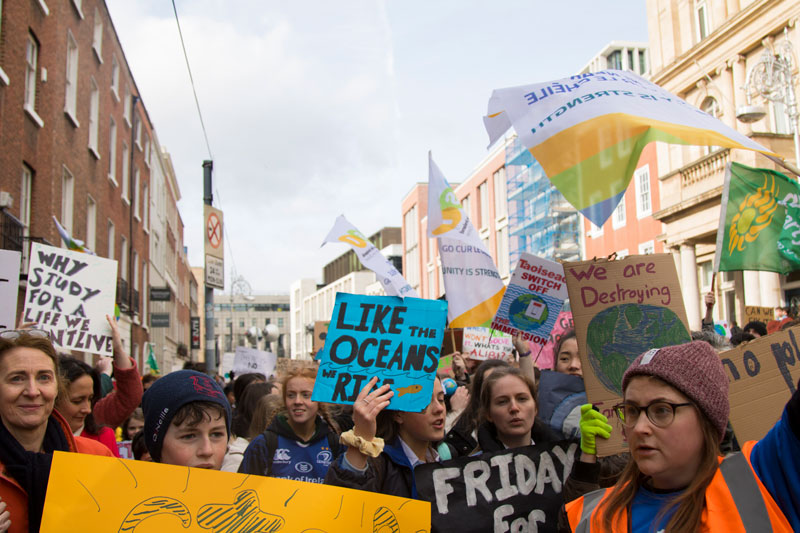Dublin experienced its hottest day ever this summer, with a record temperature of 33 degrees in Phoenix Park. But I don’t need to tell you that – across the country and elsewhere in Europe, heatwaves have been front page news for months. Teenagers have died from trying to cool themselves down, and in England there has been a 500% increase in wildfires. Climate change is on everyone’s mind as talk of the weather is as inescapable as the heat itself. And yet, as our sunburns fade and cold returns, I fear our mass focus on the climate crisis will also recede. Give it a couple of months, and fathers all over the Northern Hemisphere will soon return to joking that “we could use a little bit of global warming right about now!”
We are all guilty of procrastinating on dealing with a problem we know will only worsen with time. You need only peer into Kinsella Hall at 2am on exam week to see the evidence. Sadly, cramming doesn’t work for climate change. And, though we might learn from our mistakes and start revising earlier for our next exam (there’s always hope!), governments and businesses are repeatedly making the same mistake with climate change. They wait until the effects are impossible to ignore, and only then do they respond with half-hearted, reactionary measures.
Just because the fires we can see are quenched does not mean they aren’t fiercely raging elsewhere
Trinity is not innocent either. Though in 2016 college announced that it would stop investing in businesses which extract fossil fuels, by this time last year College was still investing in these businesses. Following reporting by this paper and demonstrations from students, Trinity committed to moving its remaining investments in fossil fuels to a Climate Conscious Fund Index. However promising, that is still six years between an initial commitment and a result, a result that only came about because of journalistic scrutiny and a focus on climate policies. If mass, intense focus on the climate wanes again after this heatwave, who is to say what else will be pushed under the rug? What other promises will be delayed, or forgotten entirely?
If you are anything like me, feeling climate change in such a tangible way during the heatwave may have left you overwhelmed about the precarity of our planet. As more “normal” weather returns, this may be a welcome reprieve for our mental health. However, just because we experience a shift in our experience of climate change does not mean the problem has disappeared. For others, the realities of the climate crisis are unabating. Many do not have the luxury of out of sight, out of mind, and just as we enjoy a reprieve from the intense summer and head into autumn, the Southern Hemisphere will be heading into its hottest time of the year. Just because the fires we can see are quenched does not mean they aren’t fiercely raging elsewhere.
They wait until the effects are impossible to ignore, and only then do they respond with half-hearted, reactionary measures
Perhaps we can try to shift our collective climate anxiety to a rigorous empathy which does not go away just because the heat does. It is not sustainable – pardon the pun – to be constantly fretting about the reality of climate change because it is quite frankly terrifying. However, we must ensure that we do not only consider how climate change will affect ourselves and those near us. Empathy is not just a feeling, it translates into action. When heartbreaking photos of three year old Syrian refugee Alan Kurdi washed up on a Turkish beach were published, it prompted a mass spike in donations to refugee charities, and a shift in public opinion towards government policy. When we understand and, more importantly, feel the impacts of a crisis, we are no longer so complacent about what is happening. We are compelled to act, but often too late.
If we want to have any chance at solving the climate crisis, we must not fall into the trap of relying on personal experiences to prompt action. If the first step is developing an awareness of the effects of climate change that persist further afield, we may in turn be more inclined to solve it, putting more pressure on those who can. It is simply not enough for climate change to make headlines only when it directly affects our daily lives, because this is too late. Not just for us, but for the people who are impacted earlier, and more severely, by the climate crisis.







